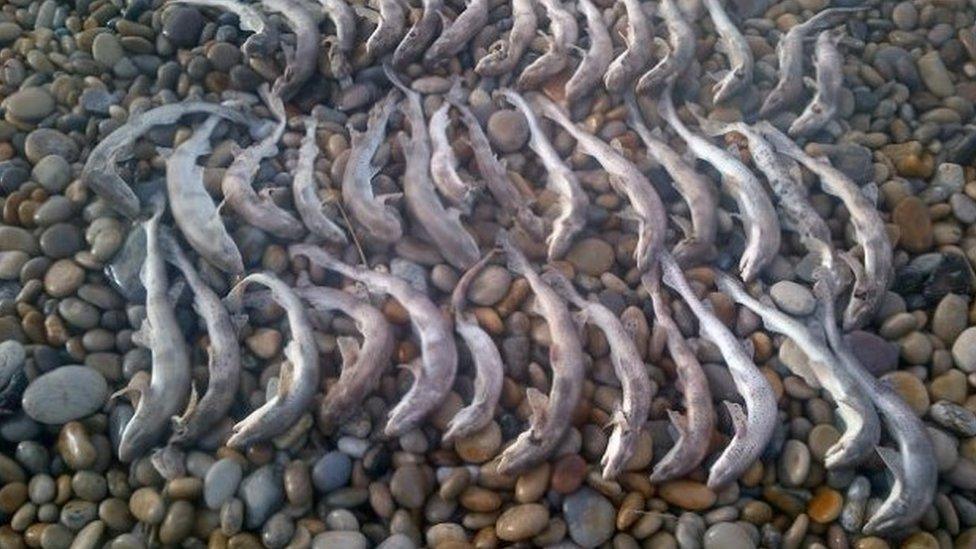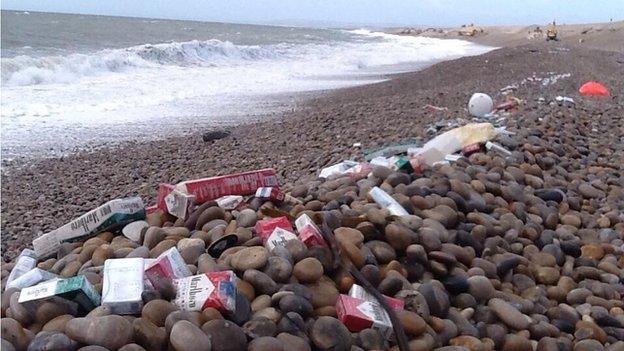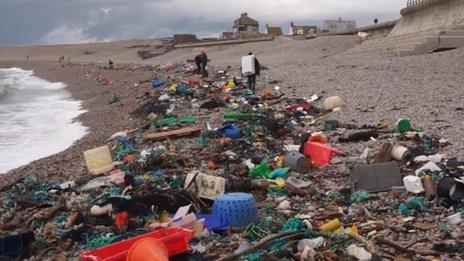Dead catsharks 'dumped' on Chesil Beach
- Published

Conservationist Steve Trewella found the fish on a 200m-stretch (640ft) of Chesil Beach and arranged them in lines together for this photograph
Forty dead catsharks, commonly known as dogfish, have been found "dumped" on a beach in Dorset.
Steve Trewhella, who made the discovery along a 200m-stretch (640ft) of Chesil Beach, said many had been cut along their back bones.
The conservationist and wildlife photographer described it as "a disgrace" and has blamed anglers.
Weymouth angler Mark Mockridge said sometimes they are thrown back but they later wash ashore.
The fact some had been cut was "strange," he added.
Mr Mockridge, manager of Weymouth Angling Centre, said: "No angler should be doing that at all."
'Inconvenience'
Richard Harrington, from the Marine Conservation Society, said catsharks, which are not a protected species, can wash ashore during stormy weather.
He said they were common in the area and regarded as an "inconvenience" to fishermen.
Mr Mockridge said: "Some anglers don't like to prepare them - you have to skin them, because their skins are like sandpaper, which can be very time consuming."
Mr Trewhella said it was not the first time he had found catsharks on the beach between Weymouth and Portland, but not in such high numbers.
He said he often found three or four together "which didn't indicate they had washed in from the sea".
Although it is not illegal, Mr Trewhella said anglers in the area should "act more responsibly".
"You don't walk along riverbanks and see piles of carp and pike piled up the river bank, but unfortunately you do on beaches," he said.
- Published25 February 2014

- Published13 January 2014
